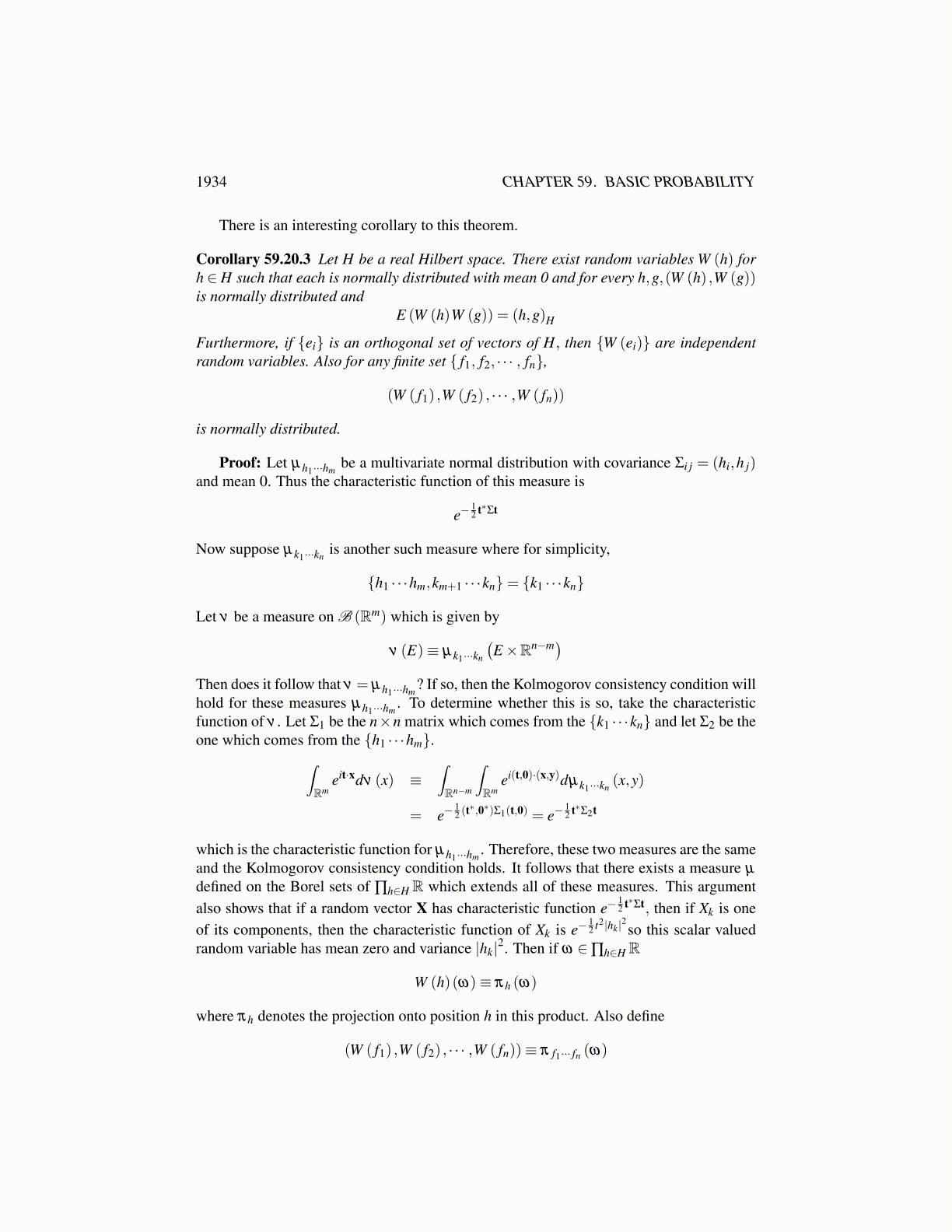
1934 CHAPTER 59. BASIC PROBABILITY
for a suitable choice of ψ ∈ Cc (Rp) having values in [0,1]. The middle term is less thanε if n large enough thanks to the weak ∗ convergence of λ Xn to µ . Hence the last limitin 59.20.49 equals
∫Rp eit·xdµ (x) as hoped. Letting X be a random variable having µ
as its distribution measure, (You could take Ω = Rp and the measurable sets the Borelsets.) what about E
((X−m)(X−m)∗
)? Is it equal to Σ? What about the question whether
X ∈ Lq (Ω;Rp) for all q > 1? This is clearly true for the case where Σ−1 exists, but what ofthe case where det(Σ) = 0?
For simplicity, say m = 0.∫Ω
|X|q dP =∫
∞
0P(|X|q > λ )dλ =
∫∞
0µ (|x|q > λ )dλ
≤∫
∞
0µ (|x|q > λ )dλ ≤
∫∞
0
∫Rp
(1−ψλ )dµdλ
where ψλ = 1 on B(
0, 12 λ
1/q)
is nonnegative, and is in Cc
(B(
0,λ 1/q))
. Now from theabove, µ (Rp) = λ Xn (Rp) = 1 and so the inside integral satisfies∫
Rp(1−ψλ )dµ = lim
n→∞
∫Rp
(1−ψλ )dλ Xn (59.20.50)
because ∫Rp
dµ =∫Rp
dλ Xn = 1
and as to the other terms, the weak ∗ convergence gives∫Rp
ψλ dµ = limn→∞
∫Rp
ψλ dλ Xn
Each of these integrals in 59.20.50 is no larger than 1. Hence from Fatou’s lemma,∫Ω
|X|q dP≤∫
∞
0
∫Rp
(1−ψλ )dµdλ ≤ lim infn→∞
∫∞
0
∫Rp
(1−ψλ )dλ Xndλ
Is this on the right finite? It is dominated by
lim infn→∞
∫∞
0λ Xn
(|x|q > 1
2q λ
)dλ = lim inf
n→∞2q∫
∞
0λ Xn (|x|
q > δ )dδ
= lim infn→∞
2qE (|Xn|q)
So is a subsequence of {E (|Xn|q)} bounded? It equals∫Rp|x|q 1
(2π)p/2 det(Σn)1/2 e
−12 (x−m)∗Σ−1
n (x−m)dx
and for q an even integer, this moment can be computed using the characteristic function.
e−12 t∗Σnt =
∫Rp
eit·xdλ Xn